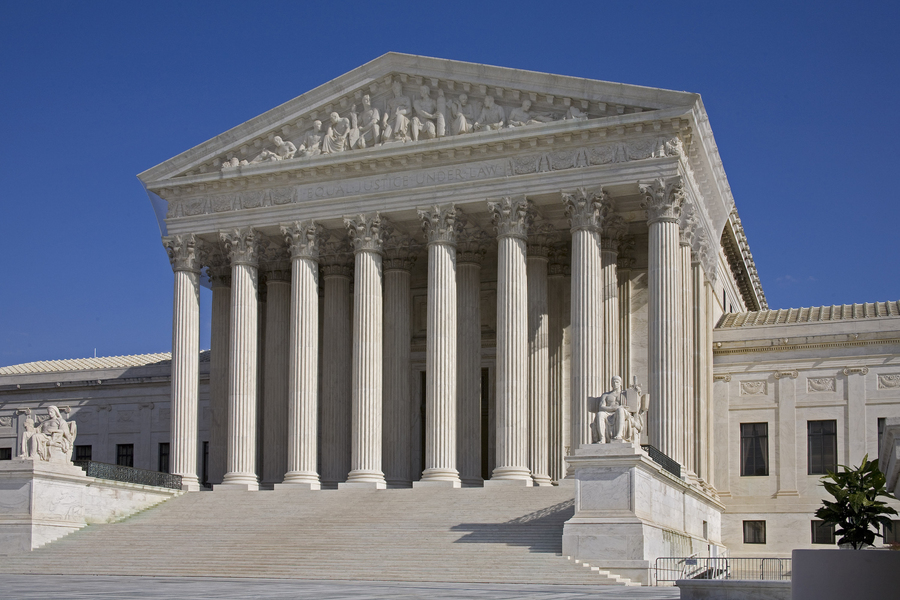Representatives of the American Civil Liberties Union’s LGBT and HIV project and child welfare advocates held a briefing call June 21 about a potential Supreme Court petition concerning LGBTQ discrimination in foster care.
Nonprofit Becket Fund for Religious Liberty is filing the cert petition, which asks the Supreme Court to review the decision of a lower-level court, in the case Fulton vs. City of Philadelphia.
Philadelphia’s Department of Human Services learned last year that two agencies, Catholic Social Services and Bethany Christian Services, hired to provide foster care services for the city, wouldn’t license same-sex couples to be foster parents because of the agencies’ religious objections.
This violated Philadelphia’s Fair Practice Ordinance, which prohibits discrimination based on characteristics unrelated to the ability to care for a child, including sexual orientation. BCS complied in March 2018, when the city told the agencies children would no longer be referred to them if they didn’t follow the nondiscrimination policy. But CSS sued the city, claiming violations of constitutional rights to freedom of speech and religion.
In July 2018, U.S. District Judge Petreses B. Tucker denied CSS’ request to issue a preliminary injunction that would order the city to renew its contract despite not complying with the city’s nondiscrimination requirement. Tucker denied that request in July and on April 22, the Third Circuit Court of Appeals voted unanimously to uphold Tucker’s ruling. The expected petition challenges that decision.
Gupta Wessler PLLC, a law firm based in Washington, D.C., will represent the City of Philadelphia, said Deepak Gupta, the group’s founding principal. Gupta declined to provide further comment.
Philadelphia’s Department of Human Services also declined to comment.
Cooper said this case is different from other cases and has “broad and profound implications…. Implications that would extend nationwide should the high court accept the claims asserted.”
“Other litigation regarding discrimination by government-contracted foster-care agencies was brought by families who were turned away, challenging the government’s authorization of such discrimination in the public welfare system,” she said. “But unlike those cases, the issue here is not whether a government may allow discrimination by contracted agencies, it is whether a government must allow it, even if it violates their contracts and undermines their child welfare policy.”
While CSS’s religious objections currently only prohibit same-sex couples from adopting, until last year, the agency also excluded families unable to provide a pastor’s letter confirming that they were of faith, Cooper added.
“The bottom line is that we need more willing, qualified and loving parents because we have many children who need families,” said Mary Boo, executive director of the North American Council on Adoptable Children. ”Federal data shows us the foster care population has risen steadily for the last five years. … At the end of federal fiscal year 2017, there were more than 440,000 children in foster care…13 percent were in group- or congregate- care settings. Each year, about 20,000 young people age out of care because they don’t have a permanent family.”
“One of the groups hardest hit by this potential decision are, of course, LGBT families who are ready, willing and able to parent children in foster care and adoption,” Boo added. “In fact, studies show that same-sex couples are six or seven times more likely than different-sex couples to raise children in foster care.”
Melissa Garlick, civil rights national counsel at Anti-Defamation League said, “If CSS’s argument is accepted by the higher court, it would open the door for discrimination against religious minorities, LGBTQ people and others and ultimately undermine the free-exercise rights of all.”
ADL, along with other faith-based organizations, read an amicus brief at the Third Circuit hearing in support of Philadelphia. Seventeen states and Washington, D.C. also supported Philadelphia in an amicus brief at the hearing.
CSS did not provide comment and according to Becket, the Archdiocese forwarded PGN’s request to the fund.
Rev. David W. Key, an ordained Southern Baptist minister at Lake Oconee Community Church, said only in recent years the concept of religious liberty has been used as a weapon by conservative traditions.
”It’s targeted initially to the LGBTQ community and to same-sex couples, he added, “but people of other religious faiths have begun to be targeted as not being qualified to serve in the foster-care service.”
When Cooper was asked what the odds were of the Supreme Court granting cert in this case, she replied, “I wouldn’t dare to try to predict that, and I really couldn’t tell you how likely it is, but I can tell you there are no other cases — this is not for example a traditional circuit split type situation that make the courts more likely to take a case. …it’s the only decision of its kind. There’s one other case that has been filed raising virtually identical claims brought by the same counsel in Michigan.”
If the Supreme Court decides to take up this case, it could be heard as soon as next term.

